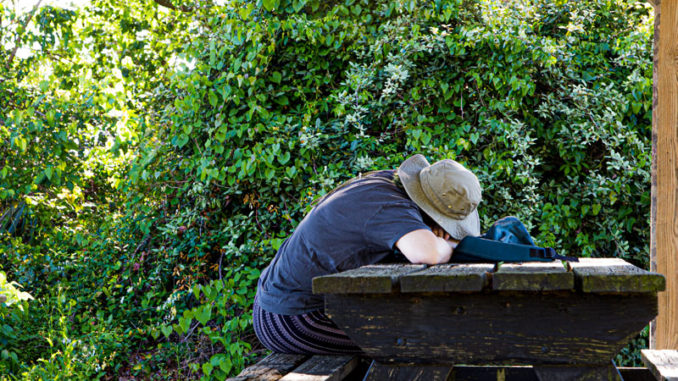
Social distancing and staying home because of COVID-19 is a challenge for most people, but what happens when you don’t have a home?
“Imagine having to put those kinds of restrictions on 200 people at one time” all living in the same place, said Kathy Johnson, director of New Directions, the main homeless shelter in Myrtle Beach.
Every day Johnson and her staff have to find ways to keep the men, women, families and senior citizens who are their regular clients occupied as they stay inside or close to the New Directions property in order to avoid infection by the virus. That’s in addition to finding the funds to keep all of them fed and sheltered.
Johnson and others like her around South Carolina are on the frontlines of trying to keep the vulnerable homeless population protected during the COVID-19 crisis. Helping the homeless is a challenge under normal conditions, and the virus has added sanitation and increased health concerns to the daily responsibilities of shelter staff.
“If any one person in the homeless community were to get the virus, it could quickly spread,” said Marco Corona, chief development officer at One80 Place, a Charleston shelter.
He said the population as a whole is very vulnerable, as many have underlying health conditions and are over 60. For this reason One80 Place is hyper vigilant about maintaining a sterile environment and is limiting the number of clients it serves to the current 100. The shelter, like some others around the state, is currently not accepting new admissions but is working with city officials to address the situation and hopes to safely take in more.
In the Upstate, the city of Greenville has done several things to try and help its homeless population, according to Rebecca Edwards, community development financial coordinator for the city. Officials placed hand-washing stations near areas where large numbers of people tend to congregate, including the main library, a soup kitchen and a church that runs programs for the homeless. The city’s buses, as well as those in Columbia, have waived fares and are limiting the number of riders to maintain safety.
Downtown Columbia’s largest homeless shelter, Transitions on Main Street, is operating on a regular schedule and serves an average of 260 clients a day, according to chief executive officer Craig Currie. The shelter has escalated sanitation and cleaning practices and staggered its mealtimes so smaller numbers of people are congregating at one time.
In Myrtle Beach, Catholic Charities continues to run Clean of Heart, which provides showers and laundry services for the homeless. Staff members have adjusted the intake process and hygiene requirements to protect both clients and workers. The Clean of Heart facility in Columbia, however, has been forced to close its doors because many of its volunteers are unable to leave their homes. Instead, staff members have been distributing hygiene and snack bags to the clients it normally serves.
Shelters are also working with city officials and health care providers to handle homeless clients who test positive for the virus or show symptoms. The goal, Johnson said, is to avoid a large-scale outbreak of the virus among shelter clients or staff members.
New Directions In Myrtle Beach has had one female client test positive for the virus and another from the family shelter who showed symptoms and is awaiting test results. Both have been quarantined for two weeks on property away from the main shelter. Johnson said she is also working with the Department of Health and Environmental Control on ways to quarantine potential new clients for two weeks before they are accepted into the shelter in the future.
In Greenville, Miracle Hill Mission Center, which serves many of the city’s homeless, is working with Prisma Healthcare on plans to use its gymnasium as a potential quarantine area for any clients who show symptoms of the virus, Edwards said.
The goal is to keep people as safe as possible while also trying to gather funds and supplies for what may be an influx of new clients as the crisis continues, officials said.
Corona said One80 Place in Charleston is already seeing an increase in calls from people who have lost their jobs, missed a rent check, and fear they could become homeless in the near future.
“There’s a lot of anxiety about what could happen in the next month or so,” he said.
Amy Wise Taylor contributed to this report.


